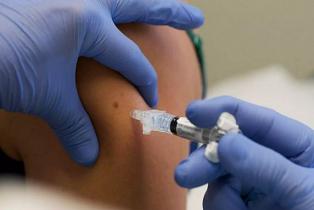US businesses that were hurt after the pandemic became politicized. Now, they're joining the effort to get Americans vaccinated.
Over the last few weeks, Walmart has administered roughly half a million COVID-19 vaccines from its facilities nationwide.
Mass vaccination sites have opened at Disneyland in California and at Yankee Stadium in New York, and NFL Commissioner Roger Goodell offered all 30 of the league's stadiums to use as mass vaccination sites.
Uber and Lyft are helping ferry people to their vaccine appointments, and Target will provide paid time off for its employees who want to go get the vaccine.These efforts represent a new push among America's business leaders at a crucial moment in time: Their economic futures hinge on people getting the vaccine.
Vaccine hesitancy
As the vaccine rollout began last year, a predictable issue arose in the US: vaccine skepticism.
Scientific evidence shows the safety and efficacy of vaccines, but there's still a portion of Americans who believe otherwise. According to Gallup polling, the proportion of those who think vaccines are safe and important to administer has decreased by 10% in the last 20 years.
There's a segment of the US population who opposes vaccines entirely - a November Gallup poll found that 12% of respondents "don't trust vaccines in general."
But there's a significant percentage that's skeptical about the coronavirus vaccine in particular, citing rushed development or safety as reasons for not wanting to get the shot. The same poll found that 42% of people said they would not take the coronavirus vaccine if it was free and available to them, compared with 58% who said they would. As Insider's Kelly McLaughlin and Yelena Dzhanova reported last last year, experts have been sounding the alarm that anti-vaccination concerns could slow the end of the pandemic, as it could lead to gaps in herd immunity. On the flip side, getting the vaccine could massively reduce the risk of infection: A study in the UK published earlier this week suggested that Pfizer and BioNTech's vaccine reduces that risk by more than 70%.



